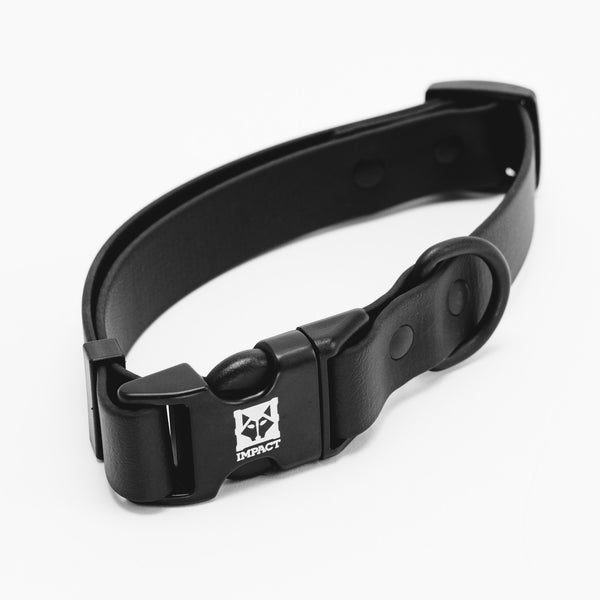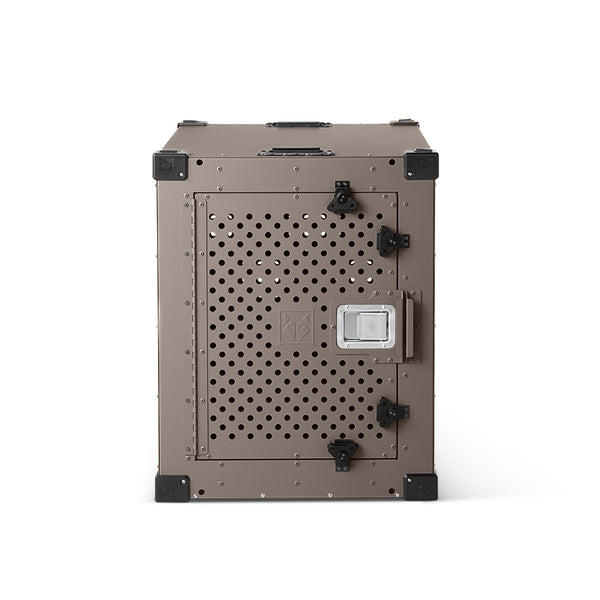Did you bring a stock of fresh apples, and your dog is finding the fruit way more attractive than their usual meal? Don't stress much because many dog parents are left confused about whether you should give them the fruit or distract them with something else. Then, let us tell you that apples, which are famous and nutritious, are safe to offer your dog overall.
However, there are some things you need to consider. What are those? Well, you have to allow the blog to discuss everything, including the multiple benefits an apple provides your dog, the risks the fruit carries, and the ways you can treat your dog with those apples.
Are Apples A Safe Option For Your Dog?
Yes, apples are a safe option to feed your dog so you can relax your inner dog parent. But, you have to give them in moderation to prevent their stomachs from getting upset and with that, it is also important that you remove the core and seeds of the apple as they contain cyanide. According to Purina, dogs can eat apples in moderation, and as long as you keep the seeds and core away from their canine teeth, your pet can enjoy nature's gift as an occasional treat. Other than that, the apple proves to be a healthy and yummy treat for your dog if you prepare it correctly and without leaving anything that results in serious consequences.
What Are The Nutritional Benefits Of Apples?
You should feed apples to your dog because the fruit is also loaded with nutritional benefits. What kind of goddess? Let us explain:
Vitamins
Apples are an amazing source of Vitamin C. According to BlueCross Organization, apples are considered a fantastic addition to your dog's diet as they consist of vitamins A and C. Vitamin C supports their immune system, so if your dog has a weak one, then the fruit can help it strengthen to fight against infections or other illnesses. At the same time, Vitamin A plays a crucial role in improving vision, skin, and health of their coat. Therefore, if you think that any of these areas of your dog are problematic, then you have found your cure.
Fibre
Apples are rich in fibre, which is why people usually prefer having them, as they promote healthy digestion. You can expect the same to happen in your dog's case as well because the fruit can boost their digestion and assist in regulating their bowel movements, especially if they have been experiencing constipation or issues while defecating. Furthermore, this nutrient goes a long way in helping your dog manage its weight, as after having a few slices, they won't ask you for more food because the fruit makes them feel full.
Antioxidants
This fruit, which appears to be so simple, consists of antioxidants. These antioxidants help in protecting cells from getting damaged by free radicals. Isn't it awesome that your dog will remain safe here, too?
Dental Hygiene
If you notice that your dog's dental hygiene is not up to the mark, allow apples to do their magic. How? The thing is that the crunchiness of this particular fruit helps remove plaque and tartar buildup because apples house malic acid, which assists in breaking the plaque and resulting in healthy teeth and fresh breath. Hence, apples are not bad for their teeth as well.
Potassium
You will be impressed to learn that apples are rich in potassium as well. It serves as an essential mineral that supports muscle and nerve function. Therefore, if your dog has issues with their muscle fibres or in the functioning of the nerves, then Apple is the fruit you need to give to your dog.
Possible Risks and Tackling
On one end, apples bring lots of benefits for your dog to the table; on the other end, they also come with risks that, as a dog parent, you must know how to tackle so that nothing happens to your dog. What are those dangers? Let's discuss:
Cyanide In Seeds
The seeds that you throw away while eating an apple consist of amygdalin. What is amygdalin? It is a compound that releases cyanide when chewed. A few seeds are labelled as harmless, but again, offering your dog to consume them in large quantities is like pushing them toward cyanide poisoning. Therefore, it is said that they should fill their food bowl with apples after removing their core and seeds. According to Nature's Menu, the seeds contain a very low amount of cyanide, which you must be familiar with as a poison. If you give your dog apples with core and seeds, you have put your furry friend into great trouble as they will start struggling to breathe properly, have dilated pupils, and even have seizures.
So, whenever you plan to give your dog this fruit, make sure to remove the seeds and core before placing the fruit in front of it.
Hazard Of Choking
Avoid giving your dog apple cores and even large pieces of the fruit. Why? It simply acts as a hazard of choking, especially for small wagging tails. For instance, the hardcore can also lead to blocking their intestines, making it problematic for them to digest and pass stool without straining. Therefore, whenever it's your dog's apple day, remember to cut the apples into small pieces so that your dog has no issue eating. Otherwise, the treat can turn into a torture for your dog. Be careful.
Content Of The Sugar
It's not a new fact that apples contain some amount of natural sugars, which, if consumed more than the required amount, can result in obesity and other dental issues. Therefore, it is better if you offer apples in moderation, especially if your dog has diabetes. Otherwise, too much sugar is also toxic for them.
Pesticides
Regardless of the store from which you bring your apples, they can always be sprayed with pesticides to prevent rotting or infestation. Therefore, whenever you bring them home and are about to give them to your dog, wash them thoroughly. Water plays a vital role in removing the effects of pesticides, making it safe for your dog to enjoy such a nutritious fruit.
Upset Digestion
You must have read the statement that you must give the apple in a moderate quantity. Too much apple can lead to diarrhoea or other serious digestive issues. The fibre in apples is safe in a limited quantity; otherwise, it can even lead to rushing your dog to the vet.
How To Safely Feed Apples To Your Dog?
Now comes the most interesting part of the blog: how to safely feed apples to your dog? If you are excited to learn, then we are equally excited to share this crucial information as well. You need to feed apples to your dog in the following ways:
Wash Them Properly
Like you wash every other fruit, you must do the same with apples. Keep your dog's share under running water and use your hands to properly wash them. This will remove the film of dirt or pesticide covering the fruit, making it safe for your furry family member to consume.
Remove the Core and Seeds
As mentioned at the start of the blog, you also need to remove the core and seeds before giving them to your dog. Otherwise, they will chew those seeds that contain cyanide, which is highly toxic to your dog. The core can block its intestines, resulting in digestion issues. Hence, carefully remove the core and the seeds as well. In this way, they will fully enjoy the crunchiness of the fruit.
Cut Into Small Pieces
Try your best to cut the apple into small pieces. Why? Cutting them into tiny pieces makes it very manageable for your dog to eat without getting choked. Just make sure that your cut pieces match your dog's size. For instance, if you have a puppy, then naturally, you will have to cut them into very small pieces. However, with big dogs, you can still go for medium-sized pieces as long as they don't get stuck in their throat.
Peeling
It's up to you whether you want to give an apple to your dog with or without a peel. The covering of the fruit is not harmful, but some dogs might have issues digesting them. If your dog is in that category, then remove the peels. Apart from that, if you fear that even after washing the apples, the pesticides might not have properly left the surface, then you can also remove the peels. In this way, you will feel relaxed that you have not given your dog the wrong thing to eat or ignored their well-being.
Offer In Moderation
Remember that if you intend to give your dog an apple, it should be considered a treat rather than a main meal. Adhere to the 10% rule; any type of treat should not comprise more than 10% of your dog's regular calorie intake. Many owners overlook this aspect and later regret it when they witness their dog falling ill. Thus, avoid repeating this mistake and follow the rule for your pet's well-being.
Gradually Introduce
Is it your dog's first time eating an apple? If so, we recommend gradually introducing the fruit to help their stomach adjust to something new. Be sure to start with a small amount and observe their reaction. It's quite possible they may not like the taste or texture, so pay close attention to their body language. However, even if they enjoy it, it's still best to avoid giving them more than the necessary quantity.
Creative Apple Preparation Ideas
The mainstream apple preparation is there, but who said that you have to stick to that idea only? Yes, you can surprise your furry friend by preparing the fruit in a variety of creative ways. What are those? Let's see:
Raw Slices
The most common idea is to cut the apple into raw slices and add them to their food bowl.
Frozen Treats
Did you know that you can freeze the apple slices to give them later? No, right? You can continue with this style as well, especially when it is extremely hot, and you see your dog panting. Hence, give them the frozen form as a refreshing summer treat.
Applesauce
Do you know how to make an applesauce? If yes, then kindly make one, but without any added sugar. Applesauce also proves to be another healthy and tasty addition to your dog's regular food. Hence, you can try this approach once a week and see how your dog looks forward to it.
Mix With Their Food
Apples are flexible fruits that you can even mix with your dog's food. So, consider this a green signal and add some pieces to your dog's daily food. This will allow your dog to absorb the nutrients from the fruit while having its regular meal.
Dehydrated Apples
You often discard dehydrated apples, but you will be amazed to learn that you can actually give this type of apple to your dog. These slices make for a delightfully crunchy treat for your pet. However, please ensure that you avoid using any kind of sugar and that they are free from artificial preservatives, as this can be detrimental to your dog's health.
Peanut Butter and Apple
Dogs adore peanut butter, and if your wagging tail is part of that group, you have another creative way to offer them an apple. What is it? Simply spread peanut butter on the apple slices and place them in their food bowl. However, ensure that the butter does not contain xylitol in its list of ingredients. This is a sugar substitute and is highly toxic to dogs; therefore, exercise great caution.
When You Should Not Give Your Dog An Apple?
While apples may be a tasty and wholesome treat for your apple, there are still some situations when you should avoid giving them this fruit. For instance:
Diabetes
Apples emerge with natural sugars. If your dog is diabetic, then the fruit can become problematic. How? Because despite being natural in nature, it causes harmful spikes in your dog's blood glucose levels. Hence, either give apples in a limited number or avoid doing so. Apart from that, you can always clear your doubts by consulting your vet, who can guide you better regarding appropriate treats for diabetic pets.
Fruit Allergies
Dogs can also have allergies. So, if your dog has a strong history of allergies to fruit or you have a heavy doubt that they might be suffering from one, then avoid giving them the crunchy fruit. They might display signs of requesting you to treat them with one slice, but you need to distract them with some other activity. Otherwise, they can suffer from mild skin irritations to severe anaphylaxis. Therefore, either store apples in a place where they can't reach them or stop purchasing them.
Digestive Issues
Dogs with underlying digestive issues or sensitive stomachs tend to experience uneasiness after consuming even a few apples. Yes, the fruit is packed with fibre, which is very beneficial, but for pets with stomach problems, it can turn into a serious issue. Hence, if you know your dog has similar issues in the shape of diarrhoea, vomiting, or other gastro barriers, then you are left with no choice but to go ahead very carefully and remove apples from your dog's treat list altogether.
Improperly Prepared Apple
We also discussed at the beginning of the blog that it is very important to remove the apple's core and seeds before giving them to your dog. The seeds contain cyanide, which can be toxic when given in large quantities. The core acts as a choking hazard, so if you don't have enough time to sit down and remove the core and seeds, we highly advise you not to give the apple. Otherwise, it will adversely impact your dog's health.
Overeating
Regardless of how healthy a treat may be, it should still be given in moderation; otherwise, overeating can lead to digestive issues. This also applies to apples. When you plan to offer this fruit to your furry friend, ensure it is within limits, as high sugar content can lead to weight gain. Therefore, even if your dog adores apples more than any other fruit, it is essential to offer them in moderation for their well-being.
Conclusion
Now you know that your dogs can eat apples, but with this, don't forget how much you have to give to them. Furthermore, you can try out the different apple preparation ideas and assign them weekly, but also be careful if your dog has fruit allergies or any existing stomach issues.






